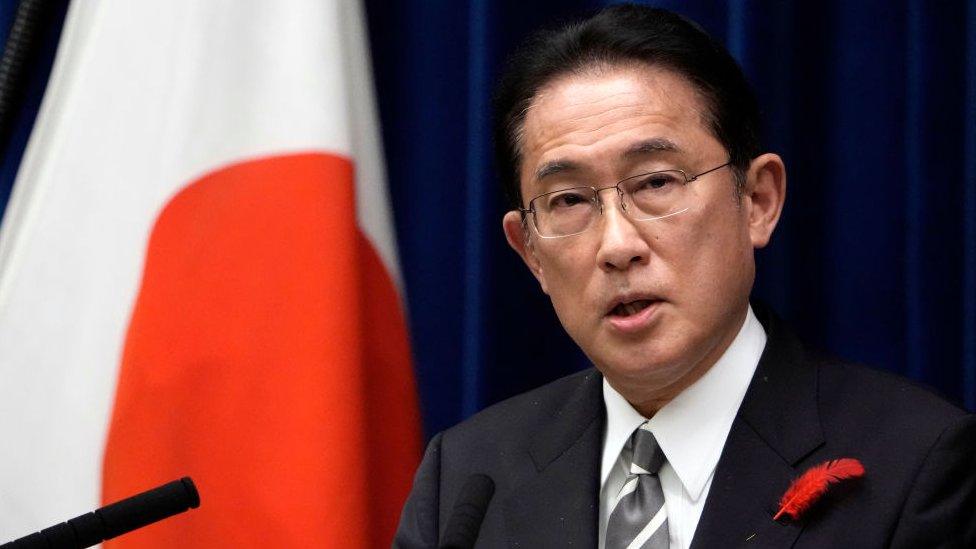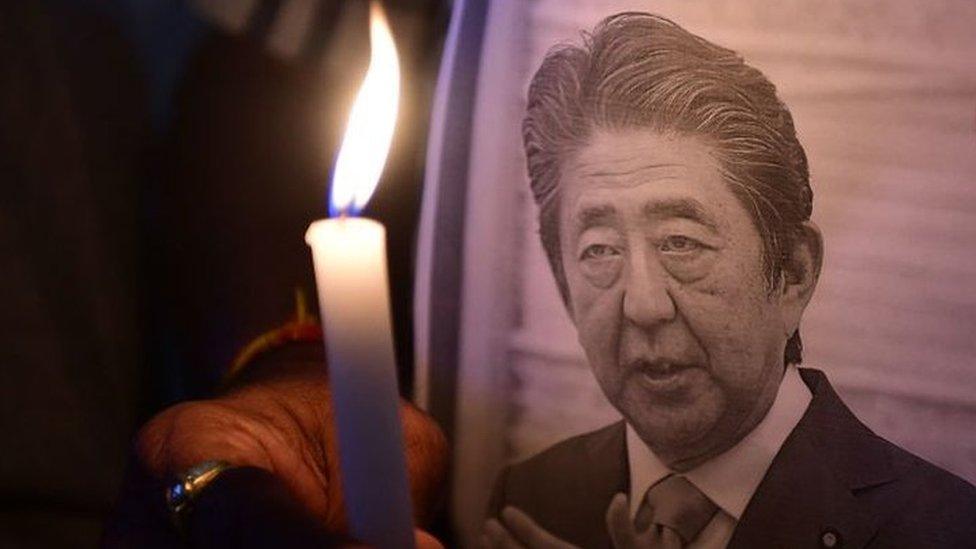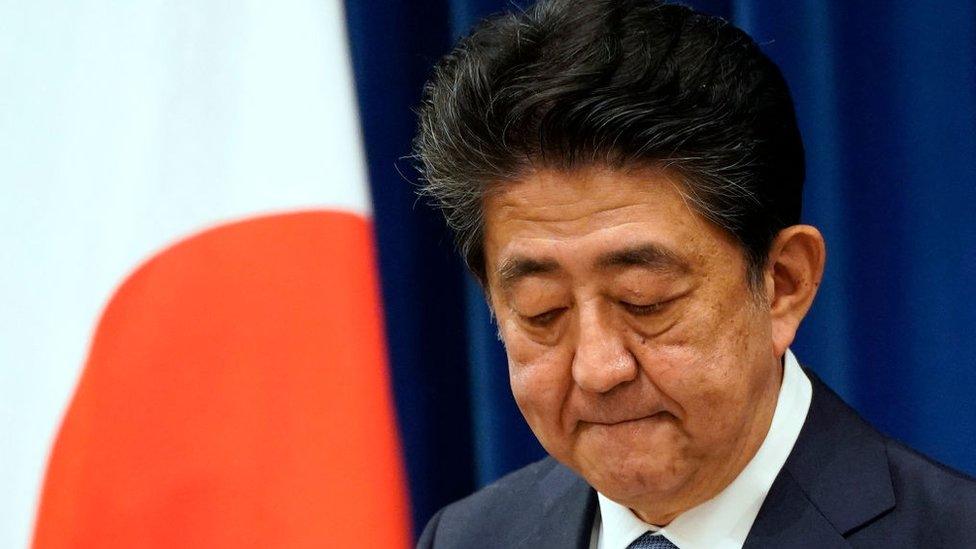Unification Church: Japan to investigate religious group after Abe killing
- Published

Fumio Kishida has ordered an investigation into the church, despite initial reluctance
Japan's prime minister has ordered an inquiry into the Unification Church, a religious group that has come under the spotlight after the assassination of former leader Shinzo Abe.
The man accused of killing him said the church had bankrupted his mother and blamed Abe for allegedly promoting it.
Scrutiny of the religious sect in the weeks following then revealed it had ties with many government lawmakers.
The scandal forced leader Fumio Kishida to apologise for those links.
On Monday he conceded to holding a government investigation into the church - after previously resisting calls for such a probe.
He said he was "taking seriously" accusations the church had ruined families and exploited its followers for money.
The church has previously said its been unfairly vilified over the Abe shooting, which it condemned.
Several lawsuits have been brought against it by previous followers of the church.
Mr Kishida acknowledged the church's "many victims" and said "efforts to help them are still insufficient".
Political commentators locally characterised Mr Kishida's announcement as a bid to win back public trust. His voter approval rating has plummeted in the past months, as news emerged of his party's connections to the church.
An internal investigation by the Liberal Democratic Party - of which Mr Kishida is head - found 179 of its 379 lawmakers had interacted with the Unification Church.
Following that report, Mr Kishida apologised and said he had asked his party's lawmakers to cut all ties with the sect. He also stressed he had no personal connections to the group.
The Unification Church, which was set up in South Korea by Sun Myung Moon in the early 1950s, entered Japan the following decade where it cultivated ties with politicians to grow its followers base and reputation, researchers say.
Observers say the group sends its followers to work as volunteers or other staff at politicians' offices and that it had built a network with the conservative party. The LDP has denied any organisational link to the church.
Known formally as The Family Federation for World Peace and Unification, it has been described by critics as "cult -like". Lawyers have accused it of coercing devotees - known colloquially as "Moonies" after its founder - to donate large sums of money.
Mr Abe's relationship to the religious group had been the topic of speculation before his death, especially on social media. He had appeared remotely as a speaker at a church-related event last year, and his grandfather - also a former Japan PM, was believed to have been close to it due to its anti-communist nature.
Related topics
- Published23 July 2022

- Published26 September 2022
